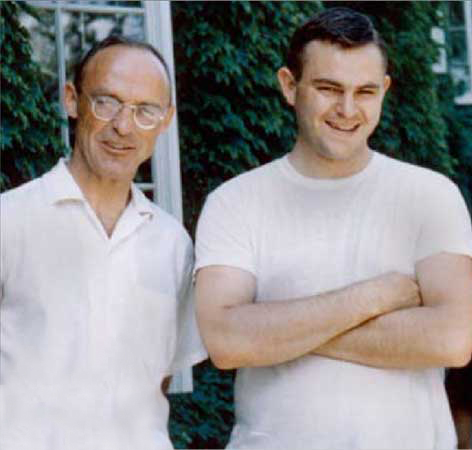$1 million endowed gift will fund innovative research in chemistry
$1 million endowed gift will fund innovative research in chemistry
A recent $1 million gift from the family of John Zabriskie ’66 (PhD) establishes a new, endowed research fund in the Department of Chemistry. The fund will honor the shared legacy of Zabriskie and his mentor, Marshall D. Gates, Jr., who is known worldwide for his groundbreaking synthesis of morphine. This discovery is at the core of many of the medications used today for pain management.
The new research fund will provide a perpetual source of support for the department to explore early-stage, high-return ideas that could potentially lead to new pharmaceutical discoveries, including those that improve the effectiveness and reduce the side effects of various medications.
“This fund will greatly benefit chemistry faculty and students,” says Todd D. Krauss, professor of chemistry and chair of the department. “It will help with their retention and recruitment. It will also facilitate the important freedom needed to pursue novel and high-risk research opportunities, especially those that have the potential for society-changing impact.”
Zabriskie passed away in 2014. His widow, Adelaide, says that he attributed much of his success to Gates’ influence on his life. Gates’ pursuit of the chemistry of morphanoids was a lifelong effort that led to many honors, including his election to the National Academy of Sciences.
“So many people benefitted from John’s perspective, guidance, and leadership,” says Adelaide. “Beyond that, he was an excellent listener who always asked thought-provoking questions. I hope this gift is a catalyst that will grow these kinds of skills, attributes, and discoveries among others.”
During his decades-long career, Zabriskie served as president and CEO of Pharmacia & Upjohn. He also cofounded PureTech Ventures, an Internet technology company; was the president, CEO, and board chair at NEN Life Science Products, Inc; and was president of Lansing Brown Investments, LLC. His career began at Merck where he spent 25 years, having moved from the laboratory to management. Zabriskie was also on several health care and academic institutional boards, including those at Nanopharma, Cellicon Biotechnologie, and Kellogg Company.
“Research endowments like this are crucial for the creative and transformative work of our faculty and their students,” adds Gloria Culver, dean of the School of Arts & Sciences. “They provide the resources to generate preliminary scientific data that can lead to competitive applications for external funding and sustain translational research programs long-term. We are grateful to the Zabriskie family for supporting such important work.”
Gifts like these help University of Rochester faculty researchers advance knowledge and drive innovation. With federal research funding decreasing and competition for dollars growing, philanthropy plays an increasingly important role in their work. Support research and learn more about how to make the world better through our Together for Rochester campaign.
